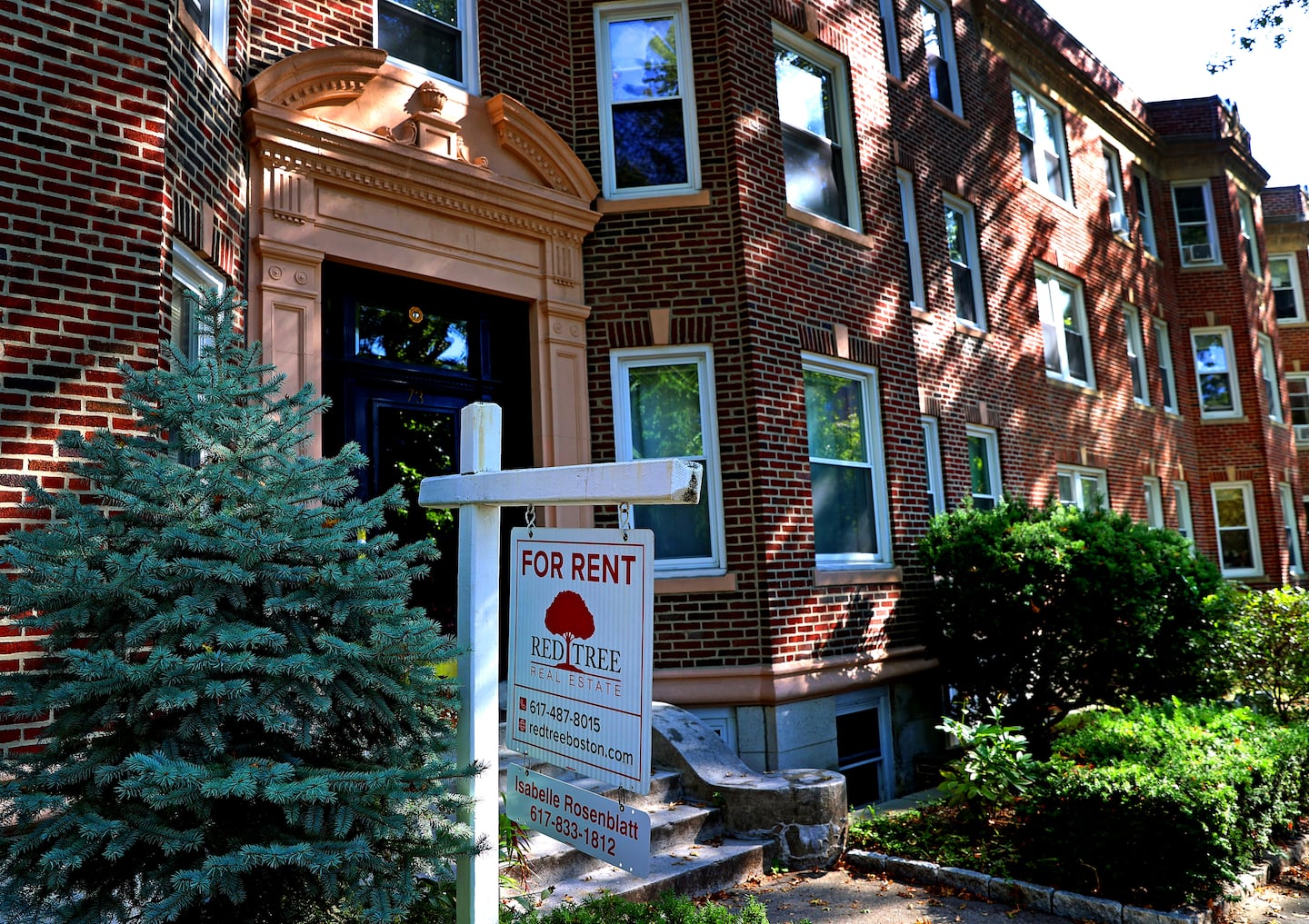
Vacancies like this one are popping up all around the city this fall, suggesting that a long-feared downturn of students and scholars has finally arrived.
Colleges do not release annual enrollment data until later in the fall, but signs are emerging that there may be fewer international and graduate students in the Boston area this academic year. Amid broad cuts to federal research funding, some master’s and PhD candidates are reconsidering their studies in the US. And new visa restrictions, and mounting hostility from the Trump administration, could lessen the number of international students by 20 to 30 percent, said Tom Dretler, chief executive of the international student advising service Shorelight Education.
A monthlong disruption to visa appointments at US offices overseas this spring did not ultimately stop the flow of students from Latin America, Vietnam, or Saudi Arabia, Dretler added. But there are fewer coming from China and India, which combined accounted for almost half of the 82,000 foreign students in Massachusetts last year. Virtually no visa appointments have been available for students in India over the past several months.
Now their absence is being felt in neighborhoods dominated by student housing, where the share of apartments still empty after Sept. 1 has ticked up, according to local rental agency Boston Pads. Near Symphony Hall and Northeastern University, the share of available apartments more than doubled, to 2 percent from 0.81 percent over the past year. And rents, meanwhile, are not rising as fast as they used to.
It may not sound like much. But in a city where apartments are typically snatched up within days, if not hours, of hitting the market, it’s a significant shift.
“When I checked the other day, we had 76 units available on just Mission Hill alone. That is virtually unheard of,” said Demetrios Salpoglou, BostonPads chief executive. “I have landlords calling me saying, ‘What’s going on with the universities? Why aren’t my apartments rented?’”
For good or ill, the housing market in many parts of Boston revolves around students. A city report in 2023 determined Boston’s many universities would have to create more than 24,000 additional beds to house all their full-time undergraduates. That year, 38,000 students — from undergrads to post-doc researchers — lived in 17,000 off-campus apartments.
Roughly 8,000 graduate students from Northeastern alone live off-campus, the report found. A separate report from Cambridge in March found that 8,000 students from Harvard, MIT, Lesley, and the Hult International Business School stayed in private off-campus housing outside of campus last year.
Indeed, Boston’s rental market is so influenced by students that an estimated two-thirds of city leases turn over on Sept. 1 — regardless of whether those units are being marketed to students.
“So the fact that there are vacancies on Sept. 1 leases, when demand is typically the highest, tells you that something has shifted,” said Brett Star, principal broker at Star Residential in the South End.
Star said vacancies may be up as a result of soaring rent prices and weaknesses in other key pillars of Boston’s economy, including the biotechnology industry. But vacancies are particularly pronounced in student-centric neighborhoods.
Star represents a landlord in Brookline, for instance, who has been unable to rent a three-bedroom after three graduate students from Lebanon, concerned about the status of their visas, did not renew their lease this fall.
“The demand for these apartments is very slim this year,” said Star. “And so if you weren’t rented up by April or May, and you had a three- or four- or five-bed, you were in big trouble.”
Kyle Rivers, a broker at Coldwell Banker Realty in Chestnut Hill who works almost exclusively with students, said he also noticed a significant dip in inquiries from international graduate students ahead of the Sept. 1 lease cycle this year.
Typically, his clients are mostly international graduate students looking to live in Allston, Brookline, Kenmore Square, and other student-centric neighborhoods. But this year, he has heard mostly from domestic undergraduates.
“It makes sense that if fewer people come here for whatever reason — maybe reduced visa availability or changes in procedures or delays in visas — the cumulative effect of that on the housing market would be noticeable, and could explain why we’re seeing extra vacancies,” Rivers said.
Some longtime residents blame the large and growing presence of students for high rent prices, which are $200 higher in student neighborhoods than the rest of the city, the 2023 Boston study shows, and lessened rental demand could provide some relief for cash-strapped renters. But those students also sustain Boston’s reputation as an academic powerhouse and contribute to its economy by eating and shopping around town. International students — a relatively wealthy cohort known for buying luxury clothes, cars, and dinners — spend $4 billion in Massachusetts annually, one estimate found.
Even a 10-percent decline in the number of international students in Massachusetts would reduce revenue from rental housing by $16.5 million, an August study from the economic modeling firm IMPLAN found.
“The economy is a network structure, and when you pull one piece out of it, it doesn’t keep moving,” said Bjorn Markeson, an IMPLAN economist who worked on the study. “It starts to break down. And that crack and fissure splits through the economy.”
Still, rental demand remains relatively strong, and the city continues to have one of the lowest apartment vacancy rates in the nation at 1.76 percent, according to BostonPads. But prices have plateaued somewhat: on average rents in the city are just 0.7 percent higher this year, according to the website Apartment List. The median rent for a one-bedroom in Boston is currently $2,388.
Allston Christmas, the annual purge of student renters and their possessions onto the streets, took place as usual on Labor Day weekend, and restaurateur Doug Bacon said his Allston eateries have buzzed with families moving students in and the usual cohort of locals.
“I don’t think that tells us anything about the international students,” he said. “It’s too early to make some kind of judgment there.”
And some landlords say uptick in vacancies may simply be a sign their colleagues are pricing their units too aggressively, given the soaring cost of nearly everything.
“Renters don’t have endless money,” said Bruce Percelay, president of The Mount Vernon Company, a real estate group that owns thousands of apartments in Boston’s student-heavy neighborhoods.
Percelay said his company chose to raise rents a minimum amount in its portfolio this year, if at all for some units, because he sensed that many renters have been stretched thin by the higher cost of living recently.
“Landlords that got too aggressive are the ones that have put themselves in a more vulnerable position. Those are the landlords that are now experiencing vacancies.”



